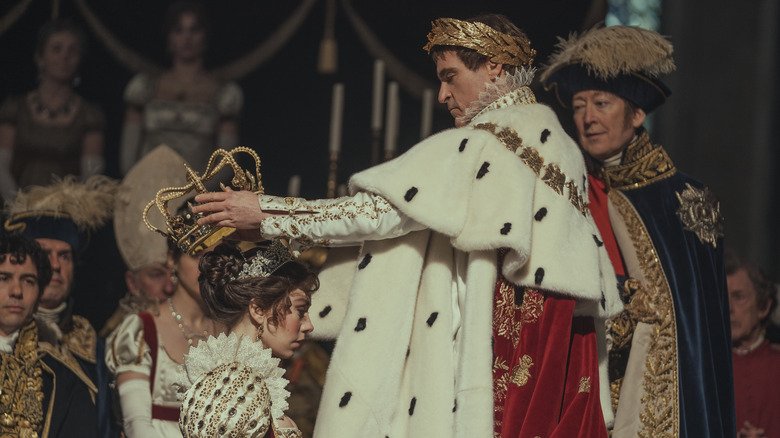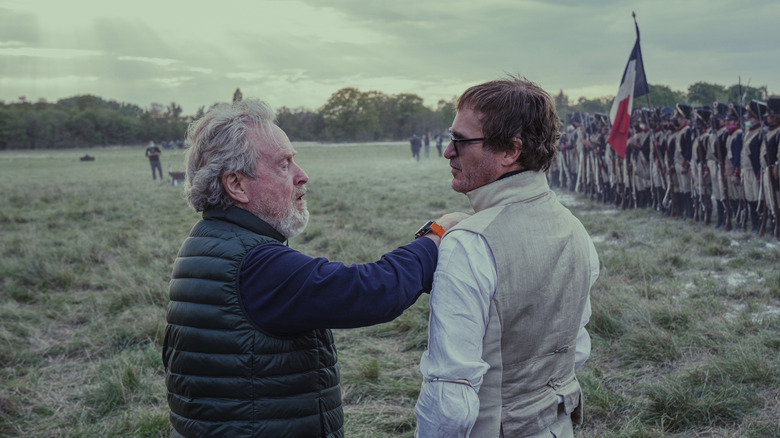Napoleon Director Ridley Scott Blasts Fact-Checkers With 3 Words
When it comes to Ridley Scott's "Napoleon," history buffs and anachronism sticklers need not apply. Joaquin Phoenix, who plays the French leader in the forthcoming film, said about as much. "If you want to really understand Napoleon, then you should probably do your own studying and reading," the actor told Empire. "Because if you see this film, it's this experience told through Ridley's eyes."
Despite Phoenix's gentle warning, the "Napoleon" trailer has inspired historians to provide their own insight. Historian and TV presenter Dan Snow, co-author of "The Battle of Waterloo Experience," took to TikTok to strike down inaccuracies, like so many soldiers at Waterloo.
"I love historical epics, I love Ridley Scott, I'm going to be watching this movie," he begins. "[But] it ain't a documentary, we know that much!" He breaks down different sections of the trailer, including a scene in which Napoleon attends Marie Antoinette's beheading, her luxurious platinum hair cascading down her shoulders.
"Love this scene," Snow says. "Marie Antoinette didn't look like that. She famously had very cropped hair for the execution, and hey, Napoleon wasn't there. He was at the other end of France." Snow even takes issue with the poster, which asserts that "He came from nothing." Snow chimes in, "He did not come from nothing. His dad was, in fact, an aristocrat."
Scott, meanwhile, isn't too concerned with the laborious fact-checking of his film. In an interview with The New Yorker, he bluntly responded, "Get a life."
Ridley Scott doesn't get hung up on historical accuracy
Ridley Scott is no newbie when it comes to historical epics, and even if his irreverence suggests otherwise, plenty of period-accurate details went into "Napoleon." The same New Yorker piece gives a lot of credit to the film's military adviser, Paul Biddis, who pored over military records and highlighted the difference between English and French combat styles. "I had some sleepless nights, because I wanted to make sure that those guys did this square perfectly," he said of the British infantry formation. When the cast nailed the shot, Scott reportedly responded, "Buy those boys a pint!"
Scott isn't throwing the history book out the window entirely, but he's not losing any sleep over a few creative liberties. He brought the same lax attitude to projects like "Gladiator," in which he played fast and loose with Roman history. Historians might have balked, but the Academy certainly didn't mind; "Gladiator" won the Oscar for best picture. Scott will likely take the same approach with the upcoming sequel, "Gladiator 2."
Scott isn't tyrannical when it comes to fact-checking, but he seems to be channeling the enlightened despot in the making of "Napoleon." "He's not un-Napoleonic himself," Napoleon scholar Michael Broers said in the same New Yorker piece. "When he's there, he's in charge, and you have complete confidence in him. He dishes it out, and he can take it."

